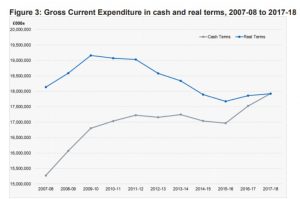
English councils increased the number of adult social workers they employ by 7% in 2017-18, driving a fall in the vacancy rate.
Authorities were employing 15,145 adult social workers as of September 2018, up from 14,155 in September 2017, NHS Digital’s annual snapshot of the adult social services workforce revealed. This contributed to a fall in the vacancy rate from 10% to 8.3%, continuing a decline in the proportion of vacant posts in adults’ services from a high of 12% in 2015.
Turnover has also fallen, with 2,100 adult social workers leaving their position in the year to September 2018, a turnover rate of 13.8%, down from 15% in 2016-17 and 15% in 2015-16.
The number of adult social worker jobs within English councils, which includes roles filled by agency and bank staff, has reached its highest level since NHS Digital started recording the number of adult social workers separately in 2011, the figures showed.
The number of social worker positions increased from 16,200 in 2017 to 17,000 in 2018, a 4.7% rise.
What has happened to council budgets?
The rise in social worker posts may reflect the fact that councils’ spending on adult social services has increased in real terms in the past two years, following four consecutive years of cuts on the back of the government’s deficit reduction programme.

Photo: NHS Digital
The increase in expenditure since 2015-16 has been enabled by a number of measures taken by the government to inject cash into adult social care, which have carried through into 2018-19 and will continue in 2019-20:
- The introduction of a social care precept, which has enabled councils to increase council tax by 2% a year from 2016-20, purely for adult social care, with the flexibility to increase rates by 3% in 2017-18 and 2018-19 at the price of freezing the precept in 2019-20.
- An improved Better Care Fund – the integrated fund with the NHS – with additional funds for adult social care of £4.4bn from 2017-18 to 2019-20.
- An adult social care support grant, providing £240m to councils in 2017-18 and £150m in 2018-19.
- An additional £240m in each of 2018-19 and 2019-20 for social care packages to ease NHS winter pressures.
- A social care support grant of £410m in 2019-20 to support adult and children’s social care services.
Through these schemes, local authorities will have access to an additional £10 billion over the period 2017-18 to 2019-20, specifically to be spent on adult social care.
How are additional social workers being deployed?
It is not clear how additional social workers are being deployed, however other figures produced by NHS Digital show the sources of additional demand on local authority adult social services departments, indicating a need for more practitioners to manage referrals and undertake assessments:
- There were 1,843,920 requests for adult social care support in 2017-18, an increase of 1.6% since 2016-17 (Adult Social Care Activity and Finance report, 2017-18).
- 394,655 adult safeguarding concerns were raised with English councils in 2017-18, a rise of 8.2% since 2016-17 (Safeguarding Adults Collection, 2017-18).
- There were 227,400 Deprivation of Liberty Safeguards applications in 2017-18, a 4.7% rise on 2016-17 (Mental Capacity Act 2005, Deprivation of Liberty Safeguards, 2017-18).
Real-terms pay down
The workforce report also revealed that council adult social workers working were earning £1,000 less in 2018, in real terms, than they were six years ago. Since 2012, social workers have seen a 2.7% decrease in real-term earnings, with median annual salaries falling from £35,100 in 2012 to £34,100 in 2018 (in 2018 prices).
This reflects the years of pay restraint in local government since 2010.
Speaking about the real term decrease in social workers’ pay since 2012, chair of the British Association of Social Workers, Gerry Nosowska, said:
“We know from our members that social workers are experiencing real hardship. We are also very concerned about the precarious nature of care workers’ employment.
“These are vital, skilled roles for our society and we should pay well for them.”


 Family help: one local authority’s experience of the model
Family help: one local authority’s experience of the model  ‘I spent the first three months listening’: how supportive leadership can transform children’s services
‘I spent the first three months listening’: how supportive leadership can transform children’s services  How senior leaders in one authority maintain a culture of excellence
How senior leaders in one authority maintain a culture of excellence  How staff support ensures fantastic outcomes for children and families
How staff support ensures fantastic outcomes for children and families  Workforce Insights – showcasing a selection of the sector’s top recruiters
Workforce Insights – showcasing a selection of the sector’s top recruiters 

 Facebook
Facebook X
X LinkedIn
LinkedIn Instagram
Instagram
Yes, terrible pay and increased responsibilities. Not long now before Social Workers will be joining the growing band of British workers using foodbanks. Austerity since 2010 has made the profession low paid and undervalued. I guess the Government take the view that making social workers live like their clients is good for them.